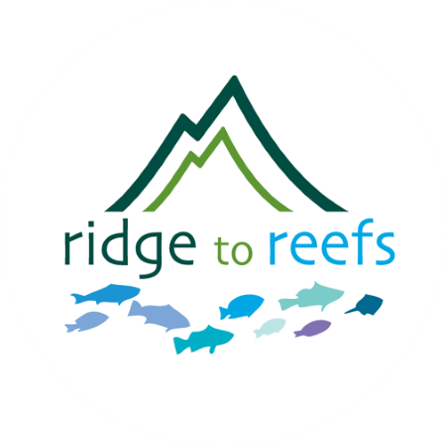Targeted Measures: Scientific Analysis, Natural Remediation
By planting vetiver grass in areas where runoff water has high levels of pollutants, the water flow can be slowed down before it reaches the nearshore waters and the coral reefs. Vetiver grass has deep roots and grows quickly, and has been shown to be safe for local ecosystems. Vetiver grass rapidly pulls excess nutrients from the water it traps and allows time for sediment and pollutants to settle out. This greatly reduces the amount of pollutants, sediment, and excess nutrient levels in the water that eventually filters out to the reef. This is a cost effective and highly efficient natural method of remediating pollution stemming from a variety of sources.
Pollution impacting the nearshore marine environment must be captured and treated before impacting coastal waters. In order to enact solutions, the sources of the pollution must be identified. This can pose a complex challenge when pollutants come from a wide variety of locations and types.
By collecting water samples and using specific analysis methods, we were able to determine specific sources of pollution. We tested for ammonia, which indicates untreated sewage, optical brighteners we are present in detergents, and Chlorophyll A, which indicates nutrient enrichment. With the source of the pollutants identified, remediation measures can be appropriately targeted.



